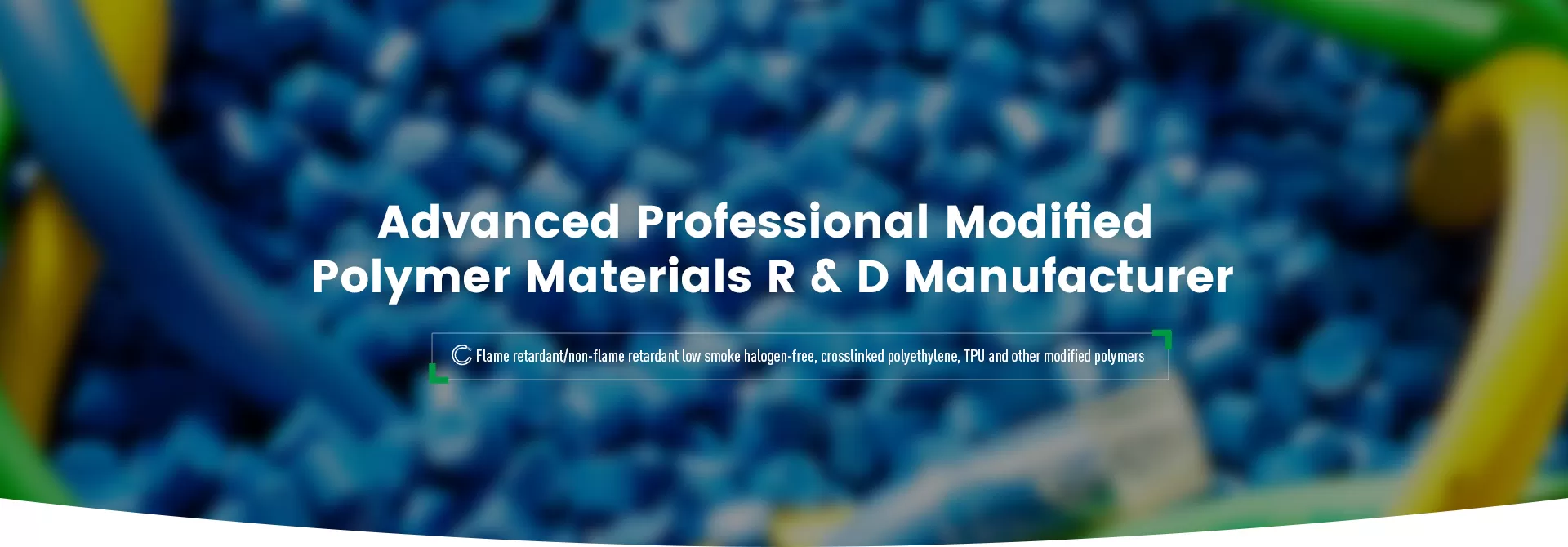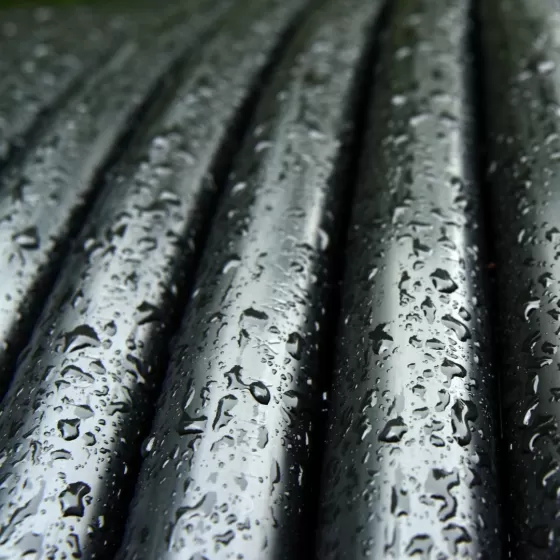

This product is made of polyether polyurethane elastomer as the base material, adding high-efficiency flame retardant and other processing aids, and is made by mixing, plasticizing and granulating. It has excellent properties such as halogen-free, high flame retardant grade, high resilience, hydrolysis resistance, heat resistance, weather resistance, oil resistance, etc., and can add matte, frosted and other effects according to customer needs; no precipitation pollution, in line with Rohs and other relevant requirements.
Seawater Resistance, Low Density
The working environment of marine cables and submarine cables is usually very harsh, and they need to withstand the corrosion of seawater, high humidity, high salinity and possible mechanical stress. Therefore, the sheath materials of these cables need to have excellent chemical resistance, abrasion resistance, oil resistance, hydrolysis resistance and UV resistance. TPU (thermoplastic polyurethane elastomer) as a cable sheath material is very suitable for these applications due to its excellent performance.
Abrasion resistance and weather resistanceTPU's abrasion resistance and weather resistance make it suitable for cables that are often moved or exposed to harsh weather conditions.
Chemical resistance: TPU has good resistance to chemicals such as oil, acid, and alkali, and is suitable for use in chemically corrosive environments.
Hydrolysis resistance: TPU has excellent hydrolysis resistance and can maintain its performance even in humid or underwater environments.
High elasticity and flexibility: The high elasticity and flexibility of TPU materials enable it to withstand repeated bending and twisting without cracking or damage.
Environmental protection: TPU is a mature environmentally friendly material that does not contain halogens and does not produce toxic fumes when burned.
In marine cables and submarine cables, TPU jacket materials are often used in combination with other materials such as copper braid, armor layer, etc. to provide additional mechanical protection and tensile strength. For example, some submarine cables may use lightweight polyethylene as the inner layer protection, and TPU is used on the outer layer to provide additional abrasion and chemical resistance protection.
| Test items | VALUE | Typical value | UNIT | Method |
| Density | 1.17±0.05 | 1.16 | g/cm3 | GB/T 1033 |
| Hardness (6mm plate) | 86±3 | 86 | HA | GB/T 2411 |
| Brittle temperature | ≤-40 | -40 | ℃ | GB/T 5470 |
| UL temperature grade | 90 | 90 | ℃ | UL |
| Mechanical properties | ||||
| Tensile strength before aging | ≥25 | 31 | M Pa | GB/T 1040 |
| Elongation at break before aging | ≥400 | 603 | % | GB/T 1040 |
| Performance after aging110℃×168h | ||||
| Tensile strength retention rate | ≥70 | 76 | % | GB/T 2951.12 |
| Elongation at break retention rate | ≥70 | 91 | % | GB/T 2951.12 |
| Tear resistance | ≥20 | 45 | N/mm | CQC1103-2015 Excursus B |
| Hot water resistance 80℃*168H | ||||
| Tensile strength retention rate | ≥70 | 80 | % | / |
| Elongation retention rate | ≥70 | 85 | % | / |
| Electrical performance | ||||
| Volume resistivity at 20℃ | ≥1.0×10^10 | 4.2×10^10 | Ω.cm | IEC 60093 |
| Flame characteristics | ||||
| Oxygen Index | ≥24 | 26 | % | GB/T 2406 |